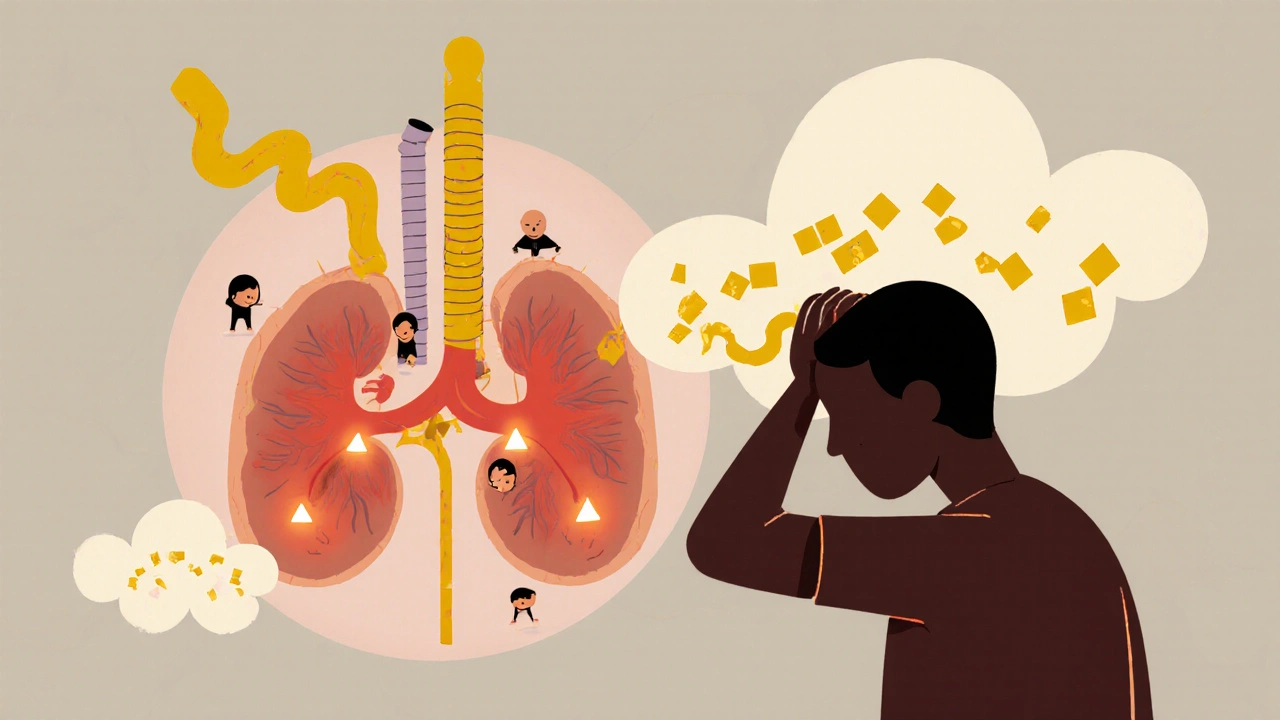Hyperparathyroidism: Causes, Symptoms, and How Medications and Lifestyle Affect It
When your hyperparathyroidism, a condition where the parathyroid glands make too much parathyroid hormone, leading to high calcium levels in the blood. Also known as overactive parathyroid glands, it can silently damage your bones, kidneys, and heart if left unchecked. This isn’t just about calcium—it’s about how your body manages minerals, hormones, and long-term health.
The root of the problem lies in the parathyroid hormone, a key regulator that tells your bones to release calcium and your kidneys to hold onto it instead of flushing it out. When this hormone runs wild, your blood calcium climbs, your bones weaken, and you might start feeling tired, achy, or even confused. There are two main types: primary hyperparathyroidism, often caused by a benign tumor on one gland, and secondary hyperparathyroidism, which happens when another issue—like kidney disease or vitamin D deficiency—triggers the glands to overwork. Knowing which one you have changes everything about treatment.
Many people with mild cases don’t even know they have it until a routine blood test shows high calcium. Others deal with bone pain, frequent kidney stones, or depression that won’t go away. The good news? You don’t have to just live with it. Medications can help manage calcium levels, and in some cases, removing the overactive gland fixes the problem for good. Lifestyle choices matter too—staying active, getting the right amount of vitamin D, and avoiding too much calcium from supplements can all make a difference. What you eat, how much you move, and even the other meds you take (like diuretics or lithium) can either help or hurt your balance.
Below, you’ll find real, practical guides that connect hyperparathyroidism to everyday health decisions—from how drugs like bisoprolol or anticoagulants might interact with your condition, to how kidney disease and nutrition play into managing calcium long-term. These aren’t theoretical articles. They’re written for people who need to understand what’s happening in their body and what steps actually work.
Hyperparathyroidism: High Calcium, Bone Loss, and When Surgery Is Necessary

Hyperparathyroidism causes high calcium, bone loss, and chronic fatigue. Surgery is the only cure. Learn the signs, when to act, and what to expect after treatment.
- November 20 2025
- Tony Newman
- 12 Comments
